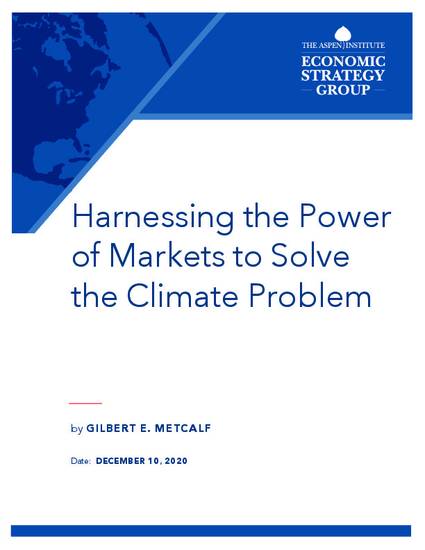
Contribution to Book
Harnessing the Power of Markets to Solve the Climate Problem
The Aspen Institute Economic Strategy Group
(2020)
Abstract
If the United States is serious about addressing the climate change problem, it will have to put in place a range of policies that reduce its reliance on fossil fuels, with the ultimate goal of achieving a zero-carbon economy. Whatever the mix of policies, putting a price on U.S. carbon pollution will be a necessary element. This chapter offers suggestions for how to design a carbon tax as a centerpiece of a federal climate policy agenda. Any carbon tax proposal should address economic concerns about trade competitiveness, as well as environmental concerns about whether the tax will reduce emissions sufficiently. I discuss how border carbon adjustments could address the trade issue and how an Emissions Assurance Mechanism could address the environmental concerns. I also discuss other policies that will be necessary in addition to a carbon tax to move the United States toward a zero-carbon economy. Finally, I review the economic evidence on the macroeconomic impact of a carbon tax. The evidence demonstrates that a carbon tax need not adversely affect economic growth or job creation, but it will lead to significant changes in the composition of jobs in the economy. Modest amounts of revenue raised by the tax can be used to help with the transition to a new economy.
Disciplines
Publication Date
December, 2020
Citation Information
Gilbert E. Metcalf. "Harnessing the Power of Markets to Solve the Climate Problem" The Aspen Institute Economic Strategy Group (2020) Available at: http://works.bepress.com/gilbert_metcalf/129/
